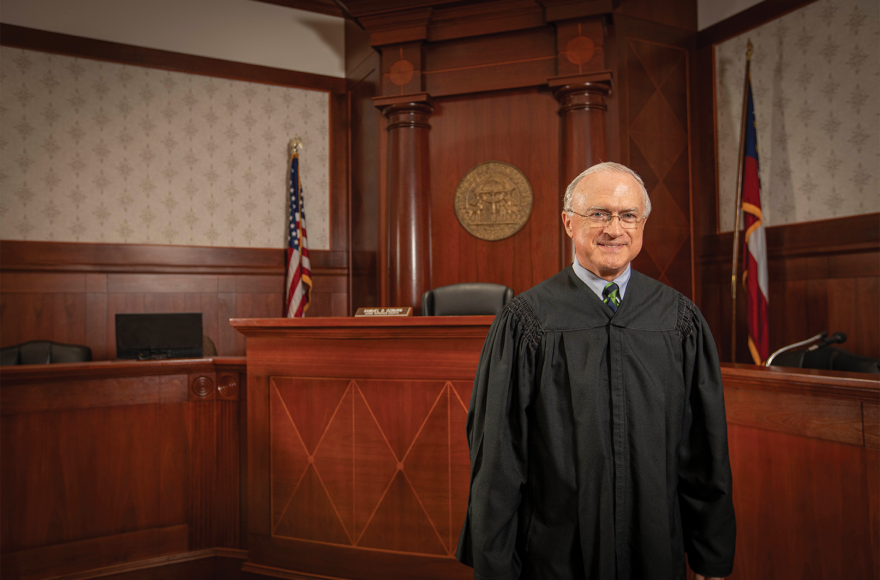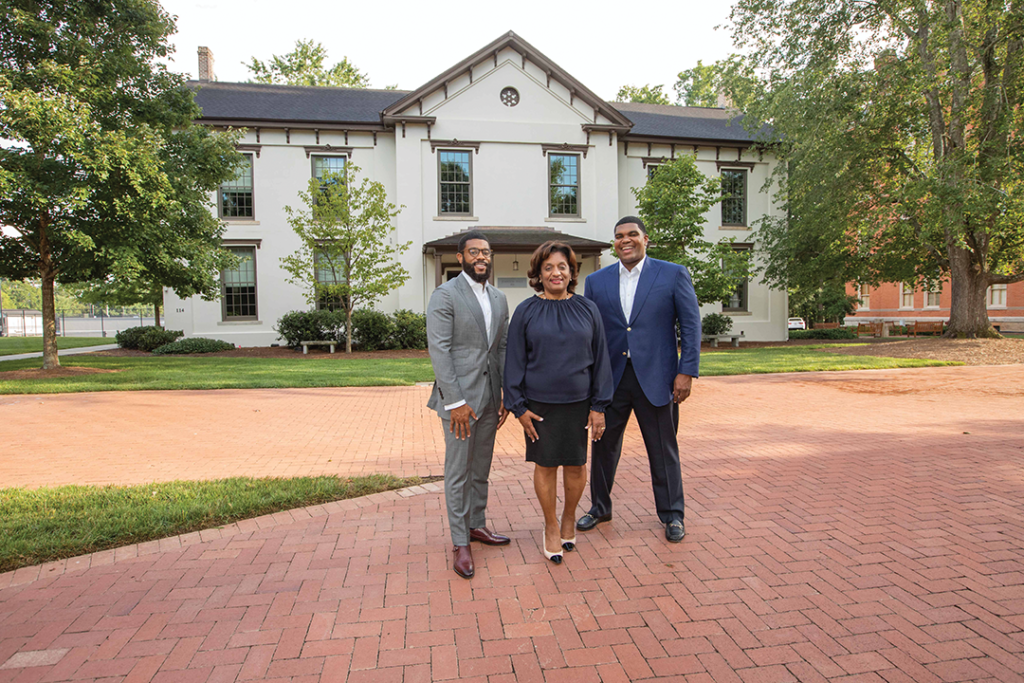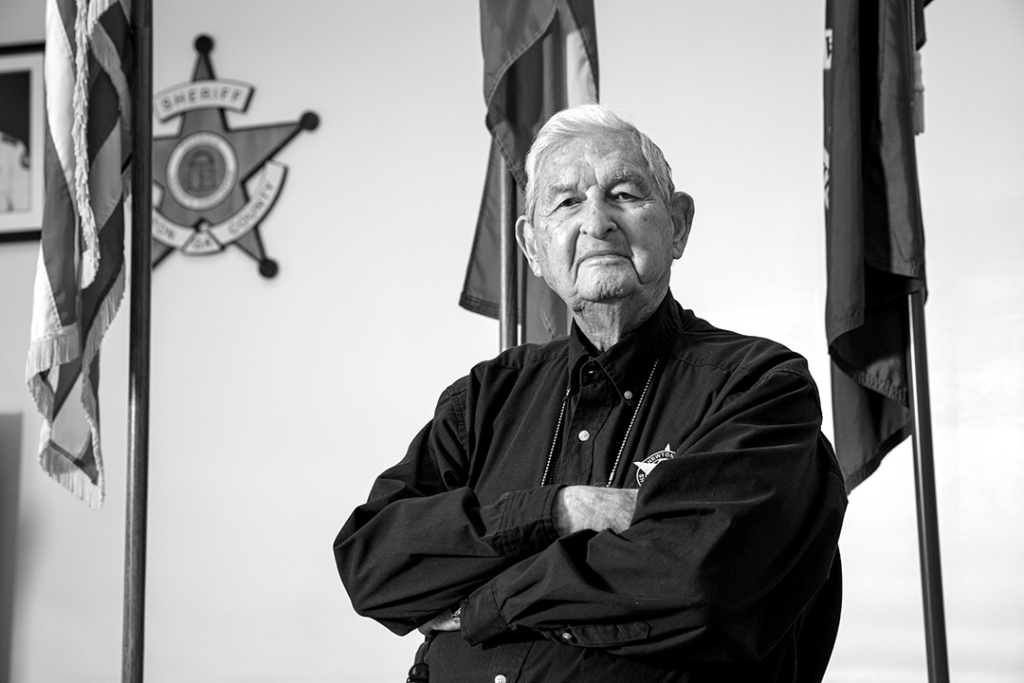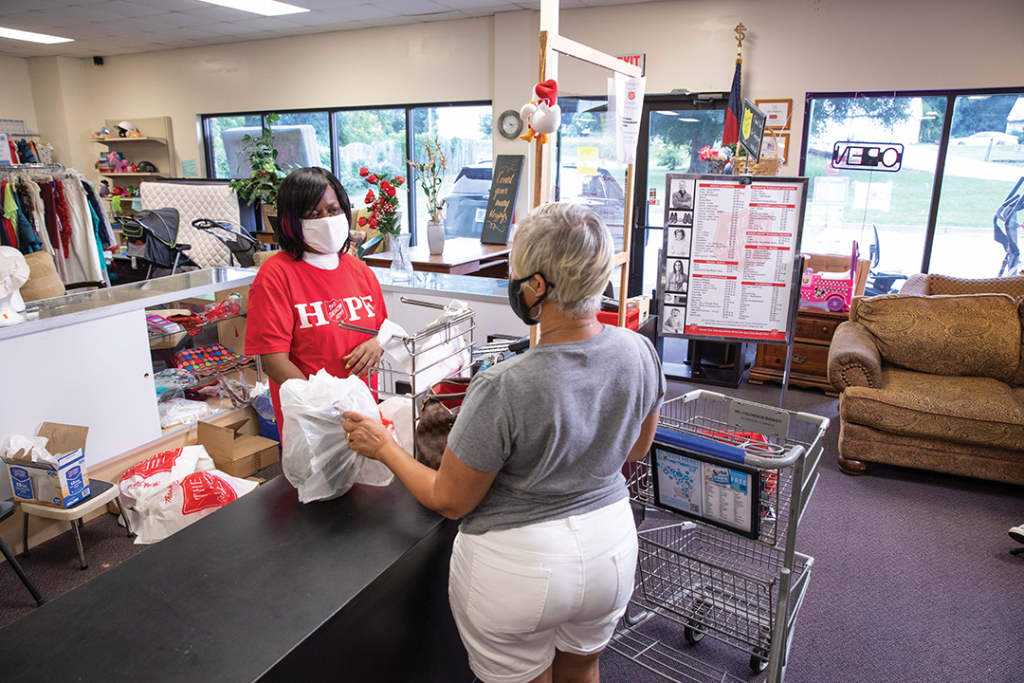A unique figure in Newton County history, Sammy Ozburn’s reputation as a man of impeccable integrity and honesty led to his gubernatorial appointment as Judge of Superior Court in the Alcovy Circuit. He retired on April 30, having served in that capacity since Dec. 20, 1995.
The time-honored process of looking up words like honesty, integrity, dedication and faithfulness in a dictionary brings with it the real possibility that one might come across a photograph of a remarkable man who exemplifies all those qualities.
Samuel D. “Sammy” Ozburn on April 30 retired from his role as Judge of Superior Court in the Alcovy Circuit, having served in that capacity since he was appointed by former Gov. Zell Miller on Dec. 20, 1995. Just how well-received was his appointment? In six subsequent elections for the post, Ozburn was never opposed—something unheard of in today’s political landscape. Ozburn has roots in humble beginnings, as he was raised in the tiny hamlet of Newborn in eastern Newton County. His father was the town’s mail carrier and founded what has become a pastime in the area: the Hornyhead Fish Festival, held annually to celebrate the aquatic wonder with the strange features.
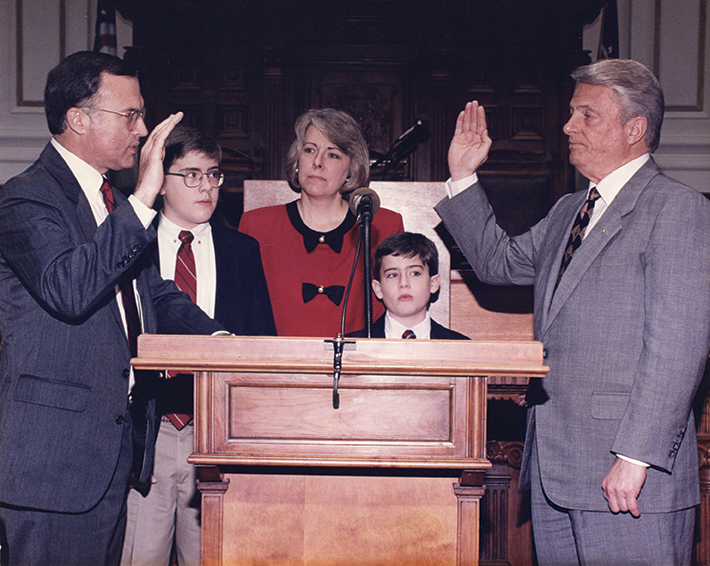
As Ozburn and his sister, Julianne, grew up in Newborn in the 1950s and 1960s, he discovered that many of his playmates were black. Despite the tension and turmoil of a turbulent era that resulted in big-city demonstrations to push for civil and voting rights for African Americans, no such issues spilled over into Ozburn’s life, as he befriended Doyle Hardeman, James Hardeman and other persons of color in his circle. His elementary school days were spent in Mansfield, where he developed friendships with Newton County fixtures like G.W. Davis and David Hayes. They eventually moved on to Newton High School, and there, from 1965 to 1969, the issues involving racially desegregating Georgia’s public schools came to the fore.
“Actually,” Ozburn said, “our Newton County High [School] Class of 1969 held our 50th reunion not long ago, and we had roughly 20 African Americans who had come to what was then called ‘the white school’ through the freedom-of-choice program in place at that time. I sought out several guys and thanked them for the courage they displayed in taking such a step back then, as it had to have taken a special degree of intestinal fortitude given the climate of our society at the time.”
“Since the days of the founding of Georgia as a state, the original Constitution called for judges to travel circuits and to be elected by the people they serve, so I very much felt then, as I do to this day, that law is a noble profession.”
Sammy Ozburn
Once Ozburn began weighing possible careers, Dr. Johnny Maloney took him under his wing and introduced him to dentistry. Maloney brought him to Emory University, hopeful the introduction would sway his decision. Life had other plans.
“I really took a good look at it,” Ozburn said with a chuckle, “and didn’t think I could spend my life looking into other folks’ mouths, so I decided to head for the University of Georgia, where I majored in finance and banking as preparation for possibly going to law school one day.”
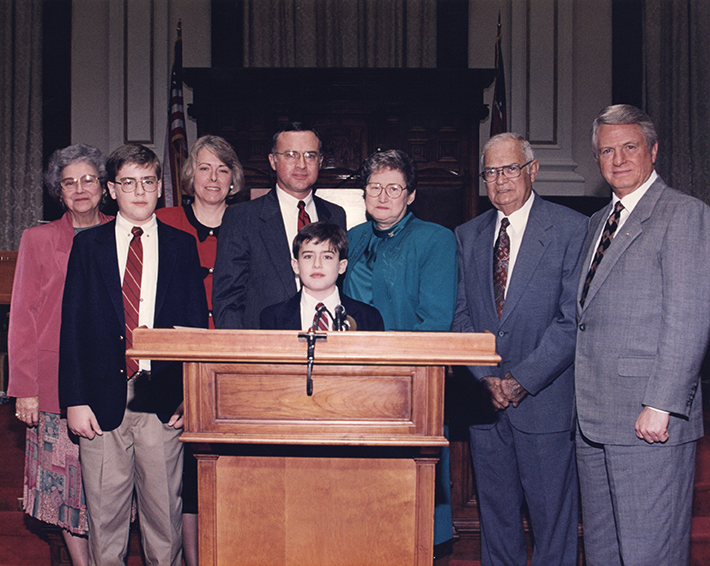
Upon graduation from Georgia, Ozburn was hired by Herbert Vining to work for Newton Federal Savings and Loan in Covington. However, fortune smiled at almost the same time, as Mercer University’s School of Law accepted his application in the fall of 1973.
“Law resonated with me,” Ozburn said. “I don’t laugh at lawyer jokes, because I’ve always felt law to be a noble profession. Since the days of the founding of Georgia as a state, the original constitution called for judges to travel circuits and to be elected by the people they serve, so I very much felt then, as I do to this day, that law is a noble profession. It’s given a bad name by all those television ads which seem to offer a financial bonanza if you’ve suffered an injustice, and that’s unfortunate, because to me, the relationship between the legal system and the people it is designed to serve is a very special thing.”
While studying law at Mercer, Ozburn wed a young woman he had known but not dated in high school. He and Rhonda, married in 1974, have two sons—David practices law in Covington with an office on The Square, and Britt works in library science, serving in a three-county system based in Rome—and three granddaughters. Following graduation from Mercer, Ozburn began his law career with 45th District State Senator Don Ballard in 1976. Ballard was a longtime fixture in government, with contacts in virtually all aspects of the field of law and connections to a broad spectrum of society.
“I learned so very, very much from Don Ballard,” Ozburn said. “There wasn’t a whole lot he didn’t know a very great deal about, and I benefited so much from our relationship as I was starting out.”

Ozburn branched out on his own in 1979, and his reputation as a man of integrity and honesty traveled far and wide. When a vacancy occurred in the Alcovy Judicial Circuit some 16 years later, Miller called on Ozburn to fill it. He began his official duties on Jan. 1, 1996 but later had to run for office on his own when that term expired. Ozburn spent more than two decades on the bench without facing opposition at the voting booth.
“I’m fortunate to serve with some fine judges in our circuit,” he said. “I realize my limitations, and I pray a lot, as I need strength from the Lord to help me do my best; and our judges get together and we pray together weekly, as we set about doing our jobs. Also, I believe that courts must be accountable and transparent to the public. To that end, I have conducted tours of the court for school students over the years to explain to them how the courts work and why they work for the betterment of society.
“We stopped counting when we passed the 7,000-student mark,” Ozburn continued, “and that was several years ago. I’m guessing now, but counting tours from scout troops, school groups and other interested parties, I’d say we’ve shown every aspect of the court to over 11,000 young folks. I want them to know, as they grow up and get out on their own in society, that the court is a friend to the public [and] here to serve them.”
Much as it may seem so given the genteel manner of this unique figure in Newton County’s history, not every aspect of being a judge is easily handled. Some events bring about angst and a degree of difficulty that must be handled with kid gloves. The most difficult cases for Ozburn were three that involved the death penalty. One of the guilty parties is serving a life sentence, and another is currently on Death Row awaiting an appeal to the Supreme Court.
“These cases are without question the toughest ones with which I’ve had to deal,” Ozburn said. “That’s because human beings are involved—not only the accused, but you have the family of the victim or victims to consider, plus the family of the accused; and anytime you’re dealing with that degree of hurt, you have to be thoroughly prepared and certain that your jury understands their responsibility, as well as understanding your own role.”
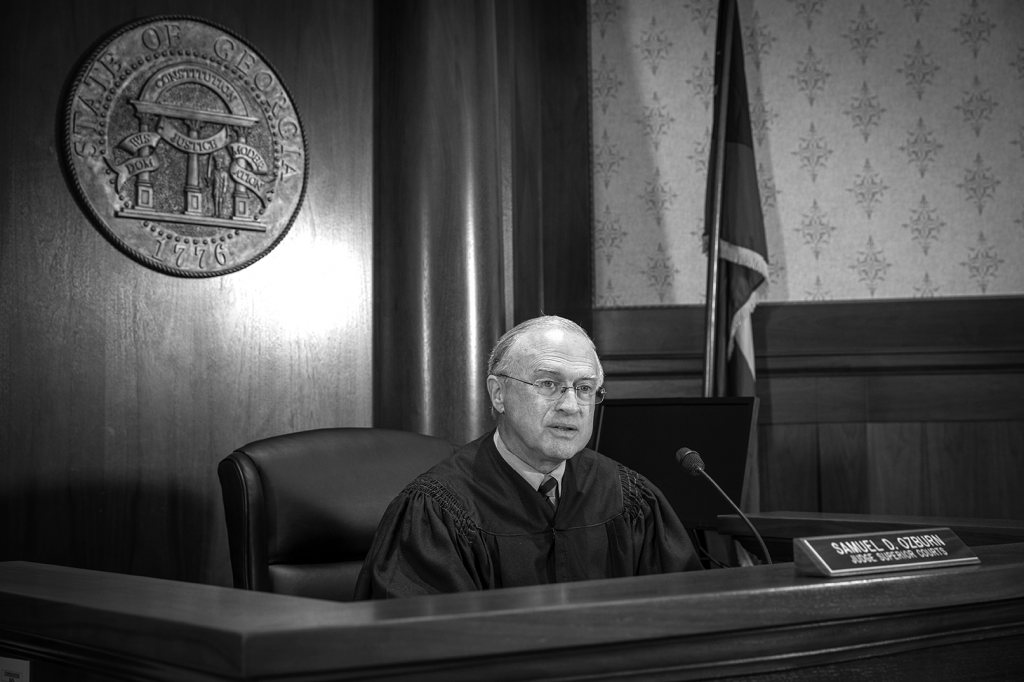
Just as there are difficulties in administering the law, there are gratifying moments, too. Ozburn served with the three Newton County Accountability Courts that seek “Justice That Restores.” They are Adult Felony Drug Court, Veteran’s Court and the one over which Ozburn held sway: Resource Court.
“This Resource Court has by far been most gratifying to me personally,” he said. “Society cannot expect folks with mental illnesses and/or cooccurring substance-use disorders to simply be able to stop and turn over a new leaf without some sort of structured help. That’s exactly what Resource Court does; we provide a program to help them turn their lives around. It’s structured in such a way that the participant is accountable to the court and the public. They attend regular individual and group treatment sessions, attend court once a week, submit to frequent and random drug screens and they have a curfew. Incentives help these folks complete their courses of healing, but those who find it impossible to complete the requirements have to return to terms of prior sentences.
“We have an encouraging and positive rate of recidivism in this program, which renders a valuable service to the community,” Ozburn continued. “One of the best aspects of our Accountability Courts is that they are transparent from top to bottom. They serve the public need as a vital step in returning offenders to responsible citizenship, and [they] are accountable in full.”
Despite his retirement, Ozburn will continue—at least for the foreseeable future—to remain true to his lifelong commitment to the legal profession.
“Well, the Governor will designate me as a Senior Superior Court Judge,” he said. “As such, I’ll continue my work with the Resource Court, until my replacement has been satisfactorily trained in those responsibilities, and as a Senior Judge, I will be able to fill in anywhere in Georgia should a judge become ill or if a vacancy occurs in a circuit.”
After practicing law for 19 years and serving as a judge for 25 more, Ozburn hopes people come to see the court as a foundational piece of society.
“The more people are educated about the court,” he said, “the more they trust the court as an important part of their community.”
Click here to read more stories by Nat Harwell.

